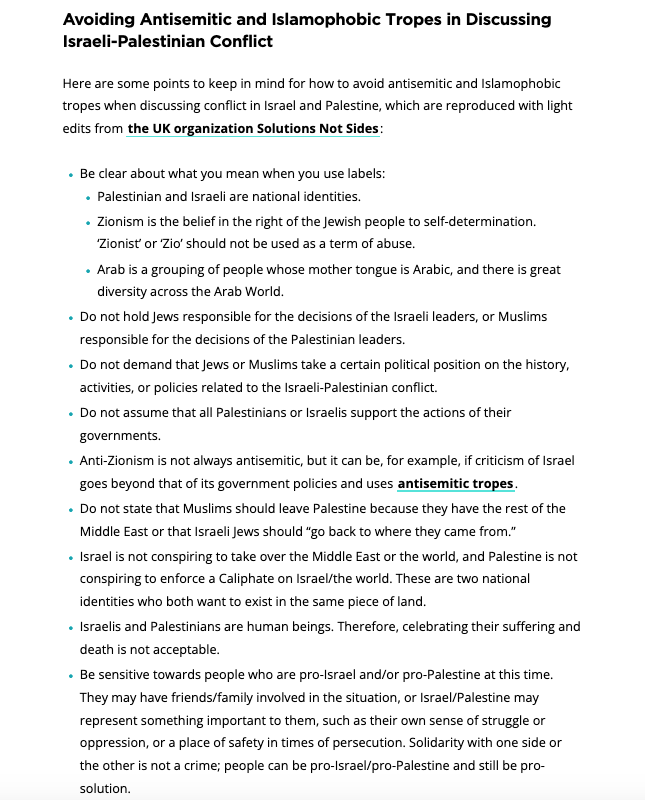Finds for Writers

Most Fridays the Practicing Writing blog shares writing and publishing resources, news, and reflections to peruse over the weekend. But it’s been an excruciating week for so many of us. And frankly, I’ve paid next-to-no attention to garden-variety news from the writing and publishing spheres.
On Wednesday, however, I received an email from Facing History and Ourselves, a Boston-based global nonprofit organization that I’ve admired for many years. The email introduced a “mini-lesson” titled “Processing Attacks in Israel and the Outbreak of War in the Region.”
The resource isn’t perfect. (What resource is?) But one of its segments impressed me as something that, though intended for educators and students, could be clarifying for writers as well, in our work and in the rest of our lives. It’s a section titled “Avoiding Antisemitic and Islamophobic Tropes in Discussing Israeli-Palestinian Conflict.”

- Ever feel as though your writing is in a rut? Nieman Storyboard editor Jacqui Banaszynski’s advice for journalists in that situation seems applicable for other writers, too.
- “How to Find Comp Titles Using ChatGPT”: advice from John Matthew Fox (on Jane Friedman’s site).
- Per Jay Peters (for The Verge), Substack’s Notes “could prove to be a worthy Twitter alternative for some, especially for Substack writers who have already built audiences on the platform.” (Reminder: Substack is where The Practicing Writer 2.0 is hosted, and lots of opportunities in the April issue remain open for you to consider.)
- Select content from the May-June 2023 issue of Poets & Writers magazine is now available to all online.
- And please don’t miss the latest Jewish literary links as compiled on My Machberet, including a preview of Jewish American Heritage Month (#JAHM); a new Global Jewish Literary Alliance; reading in (and about) Israel; and remembering author Meir Shalev (1948-2023).
Have a good weekend.

Thanks for the on-line access to Poets & Writers. I had just let my subscription lapse due to wanting to cut down on paper and the endless ads. I was already struck by one of the articles, “Who Gets to Write,” that states “literary production in the United States remains disproportionately white, according to their calculations in “Who Gets to Be a Writer?”: 90 percent of circulating titles in the twenty-first century are by white writers, a figure they came to after analyzing a sample from Books in Print, a database tracking all titles with ISBNs, including self-published books.”
I no longer have a subscription, either; I’m glad that they make at least some of the content available un-paywalled online.